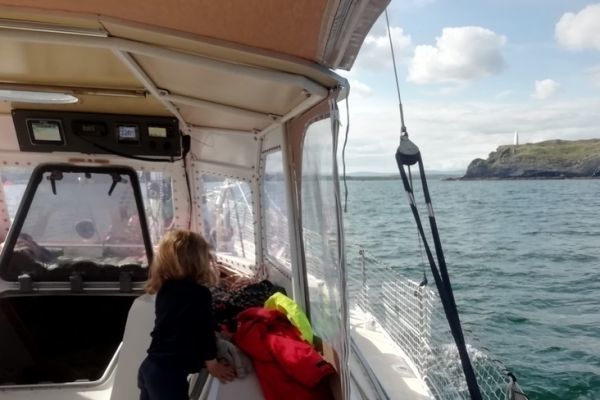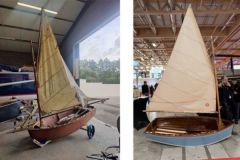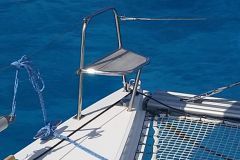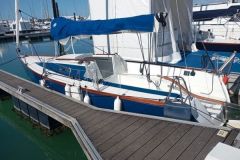Transforming your sailboat without "disfiguring" it
With a family sailing schedule, certainly to the north, there was no question of having to endure rain and spray all summer long!
Ireland and Scotland have a reputation to uphold, and while some summers have been hot and sunny, we've preferred to rely on the randomness of luck.
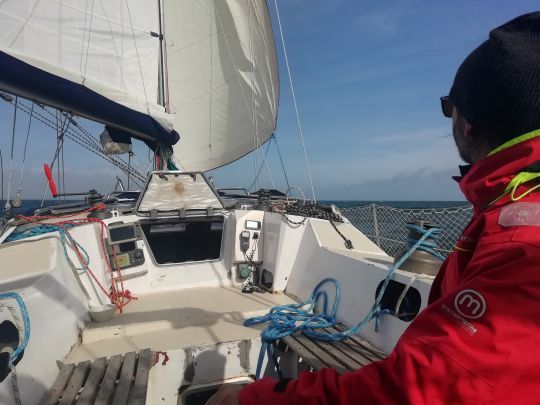
This was THE challenge: to design a dog house that was both comfortable and yet did not allow this new appendage to disfigure or break the lines of the boat. While it inevitably adds windage, crucial choices had to be made to avoid any sacrilege.
Combining protection, aesthetics and good visibility so that you can stand watch without a watch jacket took the captain several hours of sketching. In architecture, the most beautiful projects are often the result of the most complex compromises.
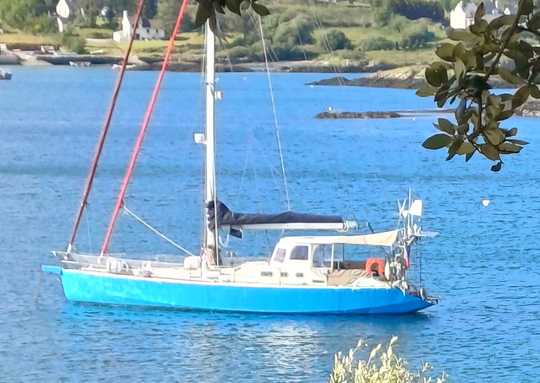
To this end, and to combine business with pleasure, we surveyed a good number of pontoons. We looked at all the sailboats displaying this element from every angle, and scrutinized them from every angle, in order to get the best possible idea of what we wanted and needed. It's the captain who'll be in charge of this project, so the stakes are high!
Layout and choice of materials: a well-ordered worksite.
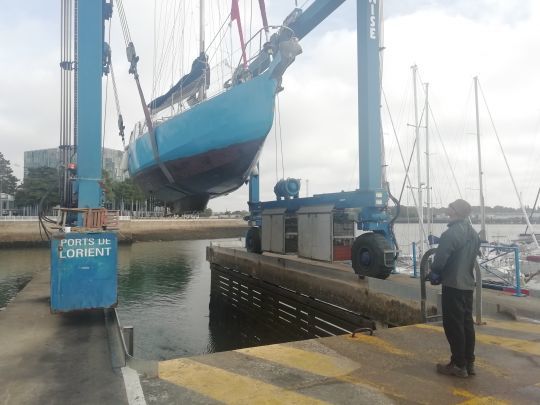
In order to be able to carry out this work, the yacht, which is made of steel, is being put out to dry. We'll take advantage of this to give her a good careening. As welding work cannot be carried out in a shed with other boats alongside, part of the deck will be lightly tarpaulined.
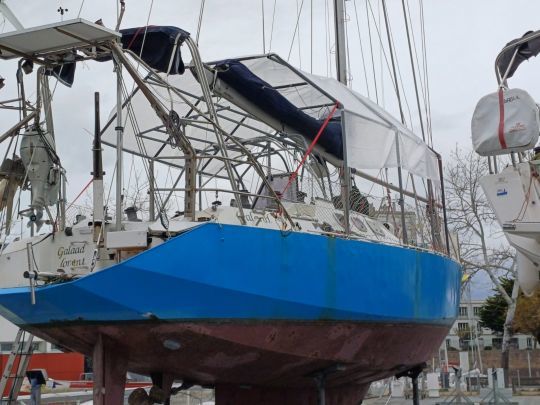
A fine PVC pipe structure is used to create a 3D rendering. This will make it possible to precisely define the locations of the fixing points and give a more concrete idea of the final result.
As for the choice of materials, here too compromises were made between weight, maintenance and cost.
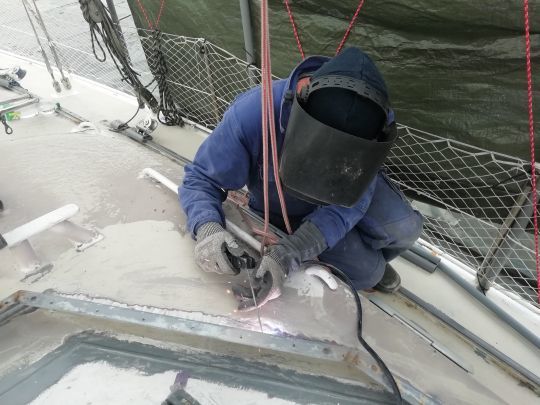
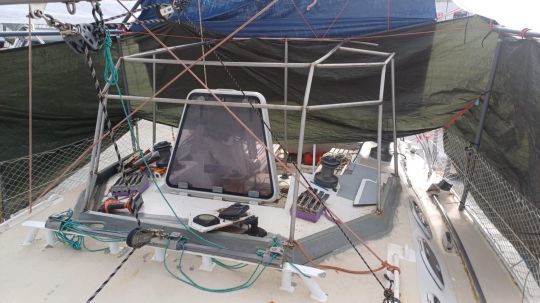
Although aluminum was preferred for its lightness, the cost and welding technique meant we opted for stainless steel tubes, and a destockage lot found on LeBonCoin will do the trick perfectly.
Here is a list of the successive steps:
-
drying out the boat
-
fitting a protective tarpaulin
-
design of a template in thin PVC tubes, shaped using a heat stripper
-
welding of stainless steel plates on deck (support)
-
installation of the stainless steel tube skeleton and welding.
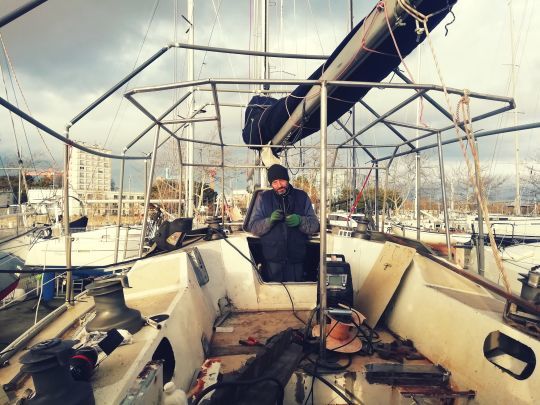
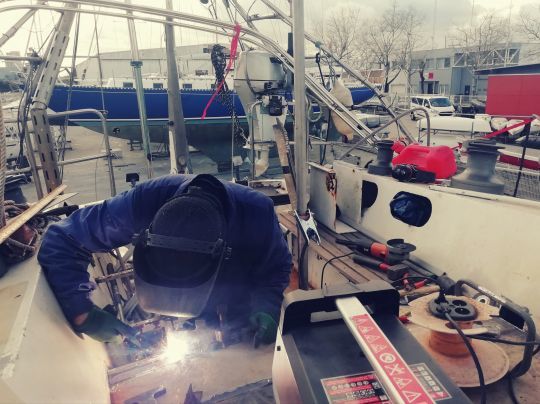
Brackets were welded to the skeleton, allowing us to screw on panels of agglomerated plant fiber. We could have chosen another material for these panels, designed to act as a frame for the Plexiglas. The disadvantages of marine CP panels, for example, are weight (a little heavier), higher cost and more demanding maintenance. The fiberboard panels finally chosen have the advantage of being lightweight, inexpensive and rot-proof.
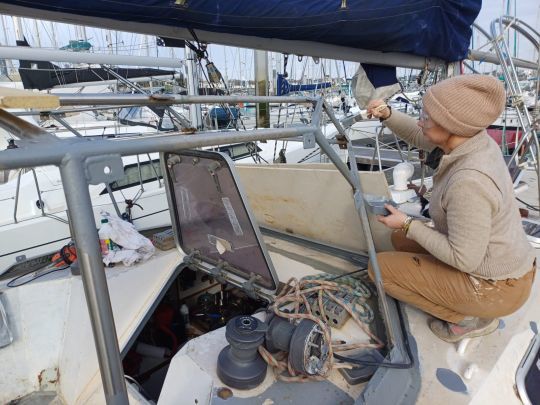
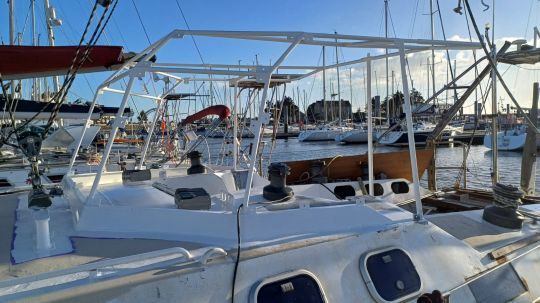
The entire metal structure is coated with a primer, then finished with paint.
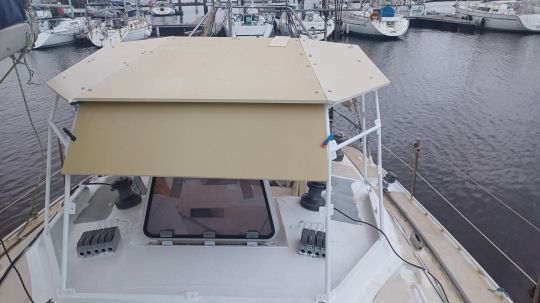
The panels covering the stainless steel structure are cut to size, so that they can be fixed to the skeleton using acrylic-coated screws and bolts. The panels are perforated on the inside, to form a frame for the Plexiglas sheets. The panels are also painted with a primer and a finishing lacquer.
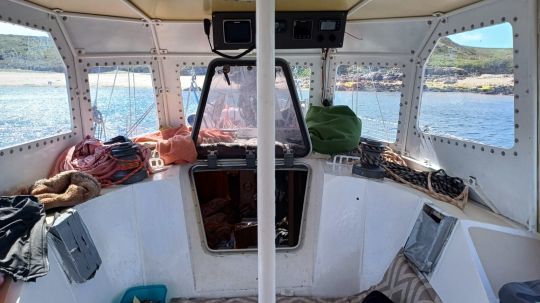
A batch of lightly tinted 5 mm thick garden plexiglass sheets is found on LeBonCoin. The cut plexiglass sheets then take their place, giving shape and life to the dog house!
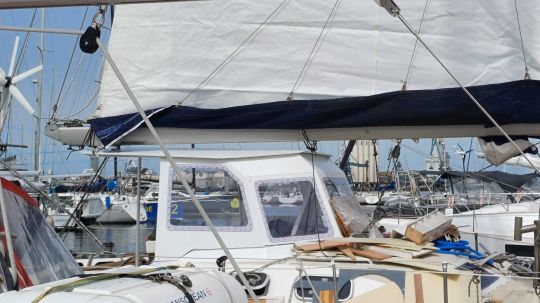
A removable textile awning for additional living space
The dog house provides the perfect structure and attachment point for a textile cover (canvas and crystal panels) to enclose the entire cockpit.
4 configurations have been defined:
-
the dog house alone or with just small ears to be protected from the wind
-
An additional canvas from the dog house to the rear portico to provide protection from the sun or drizzle,
-
a "sheltered watch" position, where the cockpit cover is removed and the entire dog house is closed off with textile doors.
-
side panels and an aft panel allow the cockpit to be totally enclosed in wind and rain, at anchor, and to provide that famous extra room (terrace, dining room, office with a view...)
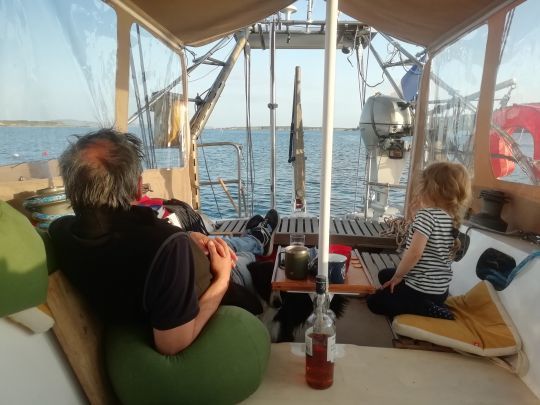
An extra room
When sailing, only the "ears" of the dog house and the canvas sheltering it from the sun and drizzle can be preserved. As for this awning, it was entirely made by a professional marine upholsterer: Escale Sellerie, based in Concarneau. All measurements were taken by her directly on board. She was also responsible for the initial fitting and the occasional rework. Fastenings are available with zippers, zippers or Loxx (a kind of snap fastening textile parts to the cockpit).
And in use?
After our summer sailing trip around Ireland, with a stopover in Scotland to the Isle of Mull, this dog house proved to be simply indispensable to our living comfort on board, both at sea and at anchor. The circular hole in the roof plate of the dog house allows us to keep a (sheltered) eye on the mainsail.
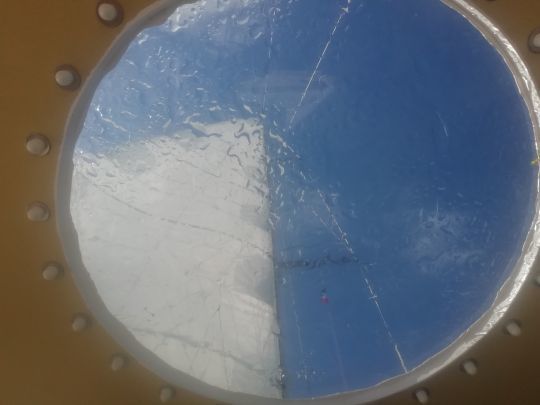
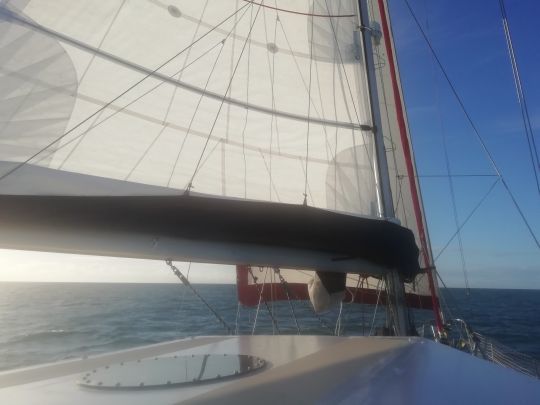
My 4-year-old daughter was able to enjoy the panorama, totally sheltered from the wind, rain and sometimes the sun, while playing and eating in complete safety.
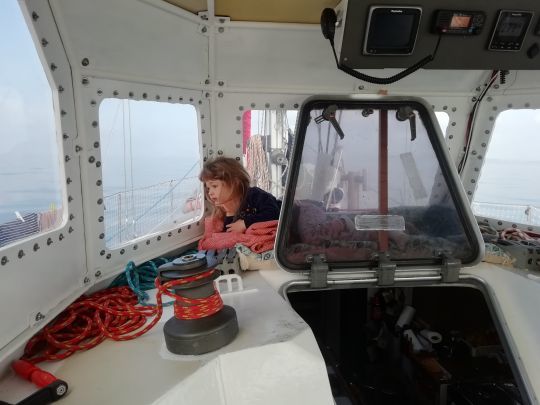
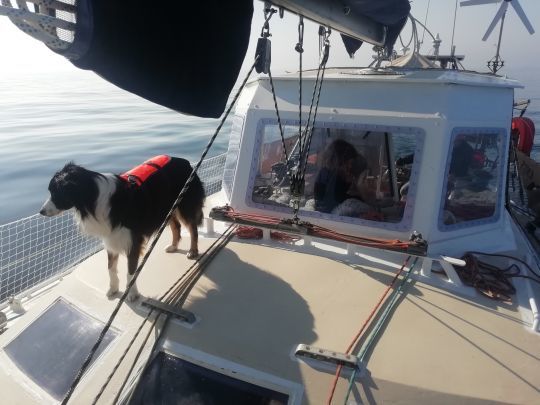
Side dodgers with storage pockets added an intimate and practical touch to the cockpit.
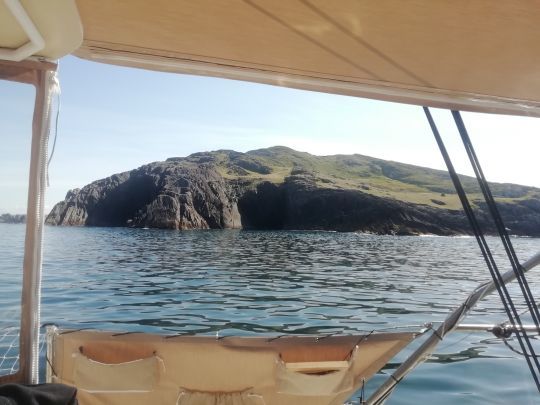
We did our watches without a watch vest, with the instruments mounted on a removable marine plywood panel. The latter is fixed inside the dog house just above the companionway hatch. In the end, navigation was carried out just like in a wheelhouse, but adjustable and adaptable according to weather conditions: a real success!
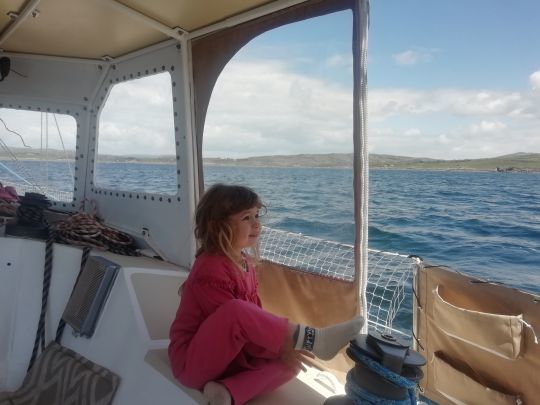
We warmly recommend this element aboard a sailboat for both very cold, temperate-rainy and sunny destinations.

 /
/ 